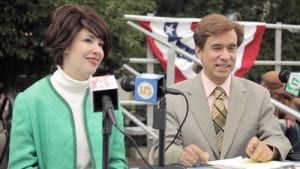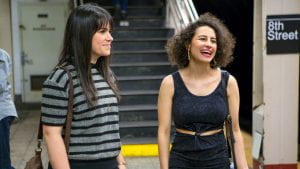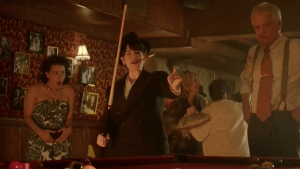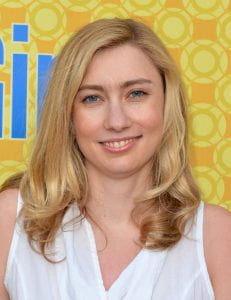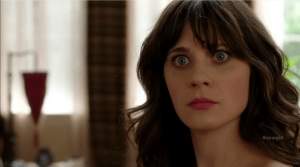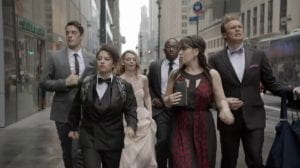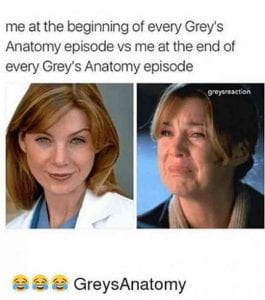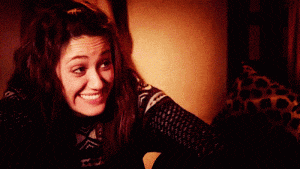For the fifth and the last Blog Entry, I am focusing on the writing of the “Normal”, the twentieth episode of season 1 of New Girl. It was written by Luvh Rakhe. He also wrote It’s Always Sunny in Philadelphia (2005) and A.P Bio (2018).
In this episode Jess brings her boyfriend Russell to the loft to meet her roommates. Her roommates and her boyfriend were awkward at first but then after talking for a while, they started bonding while playing True American, a drinking game. The next morning, Nick accidentally hurts Russell with the prototype of his idea for real apps. Russell leaves the house and Jess becomes disappointed.
The dialogue here is mainly the conversations between the characters. There is not much of a self-talk. This is important because it allows the viewers to make interpretation on the feelings of each characters and analyze it by themselves.
There were external references when Jess says act cool to her roommates. They think of what cool means to each of them and what they would do when Russell is in their house. After a couple of minutes, Jess says to them to act normal. The silences in this episode is to move from one scene to another. It is also used right before they started True American. This increased the tension of the game.

Jess, her roommates, and Russell playing True American.
I believe this episode stands out because it has a good sequence of introduction, development, turn and conclusion. At first there is a new person introduced in the relationship between Jess and her roommates. And then they get to know each other by playing True American. There is a turn when Nick accidentally hurts Russell, leading to Jess and Russell fighting and lastly, the conclusion where Jess and Russell make up. I think it is an intriguing way to engage the viewers by increasing the tension between the characters.




